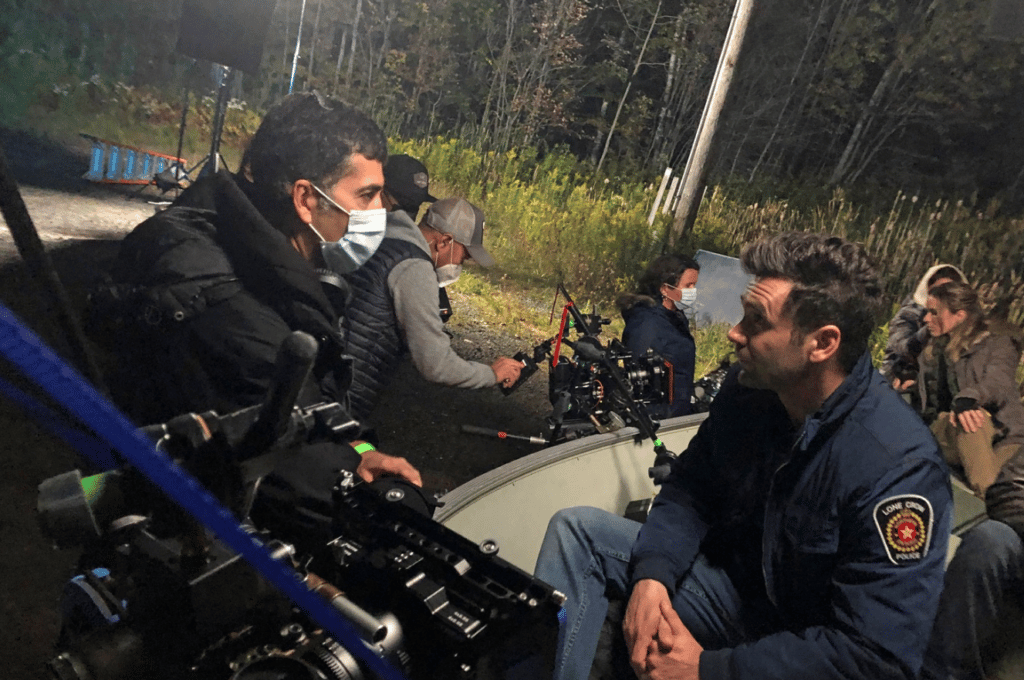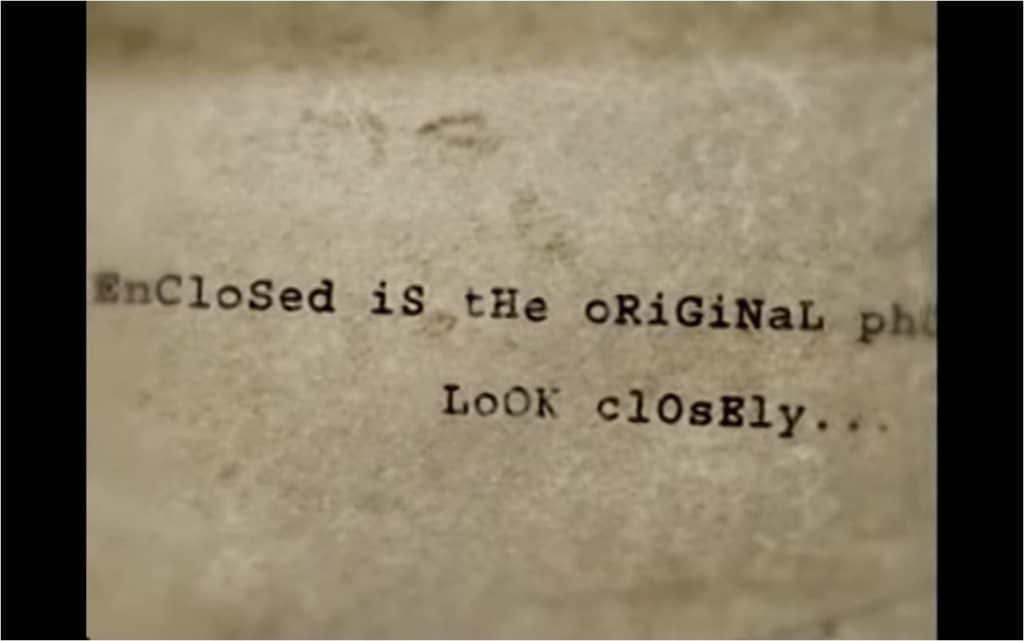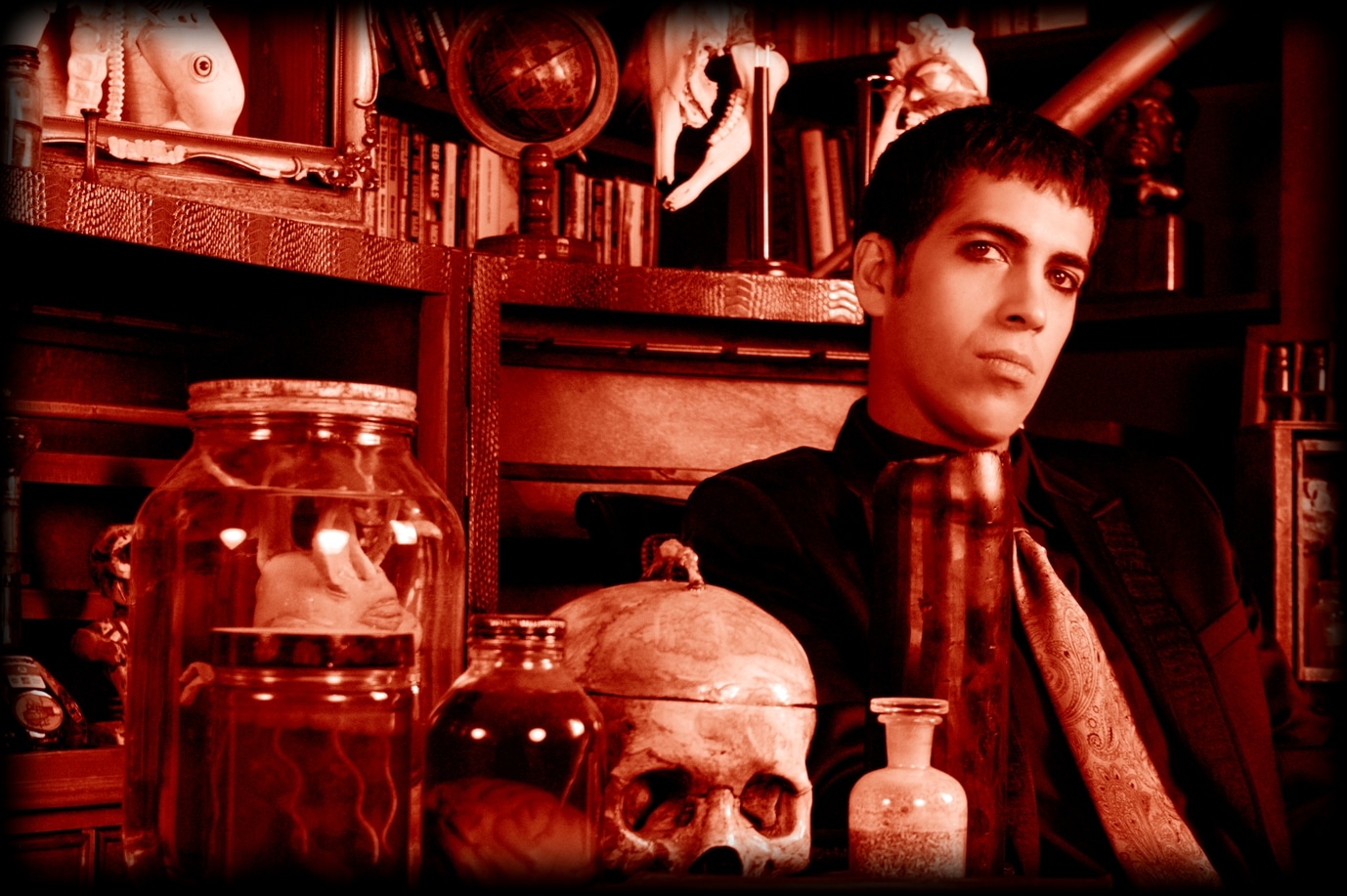As a long-term fan of both Rue Morgue magazine and his film career to date, I was thrilled to get the opportunity to chat to RM founder and director of recent feature, The Breach – Rodrigo Gudiño. The Breach got its world premiere as part of this year’s Fantasia International Film Festival and will be headed for a wider release at the end of August: in the meantime, we talked about the process of making this film, as well as plans for the future.
WP: Firstly, thank you very much for finding time to talk to Warped Perspective! Talking about The Breach first of all: what appealed to you about using the Nick Cutter story of the same title as your basis for the film, and what were the challenges of adapting this story?
RG: Thank you! I learned about this project when I was offered the script. At the time, I had actually not read Nick Cutter, so I just took the script on its merits, which were strong. Nevertheless it did require some massaging to get it to the level of something that could be shot, so I proposed changes that thankfully Craig (aka Nick) and the producers at Hangar 18 were enthusiastic about. But in the end, because were pressed for time, I never ended up reading the book. For me, the script always came first.

WP: The Breach contains elements of several different genres, but it feels in some ways like an updated take on the haunted house, albeit the source for the phenomena is different. This feels like a theme you enjoy exploring, as it also forms part of your first feature-length, The Last Will and Testament of Rosalind Leigh. What is it which appeals to you, personally, about this horror theme? And do you/did you have any particular inspirations from pre-existing films, TV or literature for your feature-length films to date?
RG: Yes this is a recurring theme for both movies, but that’s pretty much where the similarity ends. In Last Will, the ghost story was a device for exploring ideas related to how people can haunt and be haunted by grief. In The Breach, it was a plot device to add a layer of scare and to keep the audience guessing as to what the real story was. So there were very different motivations for each. The Breach was a departure for me as I normally write my own material, so my approach here had less to do with my personal concerns or obsessions and more to do with simply trying to make the story I was given work. In the end, this allowed me to experience the process in a really different way which was quite pleasant and stress free. But the haunted house as a trope is obviously fascinating to me, partly because ghosts walk the fine line between fact and fiction. There is a lot of mystery and natural fear there. I suppose I am quite drawn to those two things.
WP: There’s a lot of practical SFX work in The Breach. This is something which inevitably draws debate – and strong feelings – amongst horror fans! Were you always going to work in practical effects to this extent, and are you happy with the outcome overall?
RG: Yes absolutely, I’m very old school in this regard and pretty much always prefer practical to digital effects. That said, all the practical effects you see in The Breach are enhanced with VFX so really it’s a marriage between the two. And yes, I am happy with the outcome, especially in the context of the first two acts of the movie.
WP: Sometimes audiences may not be aware of the story behind a particular scene, an element of a scene, or other specific features which the filmmaker and team wish they could tell their viewers about and/or get them to fully appreciate. Are there any examples of that in The Breach you could tell us about?
RG: Absolutely! One thing that people seem to get a kick out of is the conditions under which we shot The Breach, which of course was in 2020, at the heart of the pandemic. The streets and parks were empty at the time and when I arrived in Perry Sound to shoot I thought, excellent, we’re going to have the run of the place. Nothing could be further from the truth as we weren’t allowed to shoot anywhere. The result is that we had to build the house from scratch in the ballroom of the hotel we had taken over. We converted the hotel kitchen into a morgue as well and generally stretched our creativity to the limit. Parts of the river scene were obviously shot on the river, other parts were shot in the hotel parking lot. It was certainly challenging but worked out in the end.

WP: You started out making short films: your short, The Facts in the Case of Mister Hollow, is a really accomplished use of the format, a clever idea which emerges via getting the audience to look again, and again, and again until realising they’ve been told a very different story to what they initially expected. But storytelling unfolds differently between short films and longer-format films; do you have any preference for one or another, and do you expect to make more short films – or stick with features?
RG: I love short films and would love to make more. The problem is that there is no real market for them so unless they are a part of an anthology they are hard to justify. That said, in my writing I sometimes to tackle a scene as a short. My thinking is, if this scene was taken out of the film, could it still function as a complete story? Obviously you can’t do that always, but at times it can be something to go for. It keeps the writing sharp and can add a really interesting dimension to the scene. I would love to return to the short format if the right opportunity presents itself, but right now I am only working on feature films.
WP: How do you feel – if at all – that your experiences as Rue Morgue’s founder and editor has affected your work as a filmmaker?
RG: Rue Morgue was my horror university – I kind of learned everything I know from my time here. I got to meet all my hero directors and sometimes spend time with them on set and ask them penetrating questions about their work. Not to mention all of the horror films I have been exposed to over the years from all over the world. My genre vocabulary is due entirely to my time at Rue Morgue.
WP: Looking to the future, now that you have successfully completed The Breach, do you have any concrete plans ahead – or any dream projects which you hope to get going?
RG: Yes: I have recently completed the script of a Spanish language horror film I would (ideally) love to shoot in Mexico. It’s very elaborate and dark. I also have another smaller project I am working on right now that is a horror drama based around some very nasty people with very bad intentions. I have a lot of other stories kicking around in my head (and my desk drawer); it’s tough to pick the next one.
Many thanks to Rodrigo Gudiño for his time!
